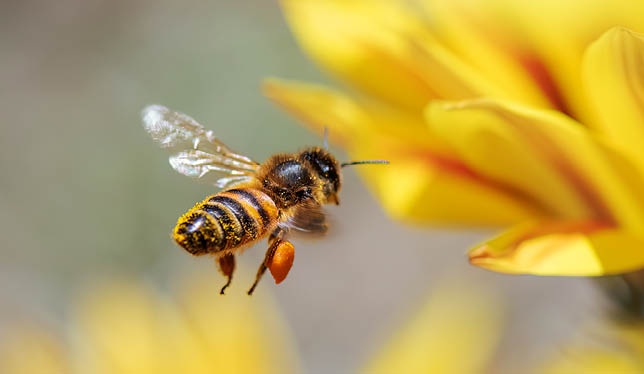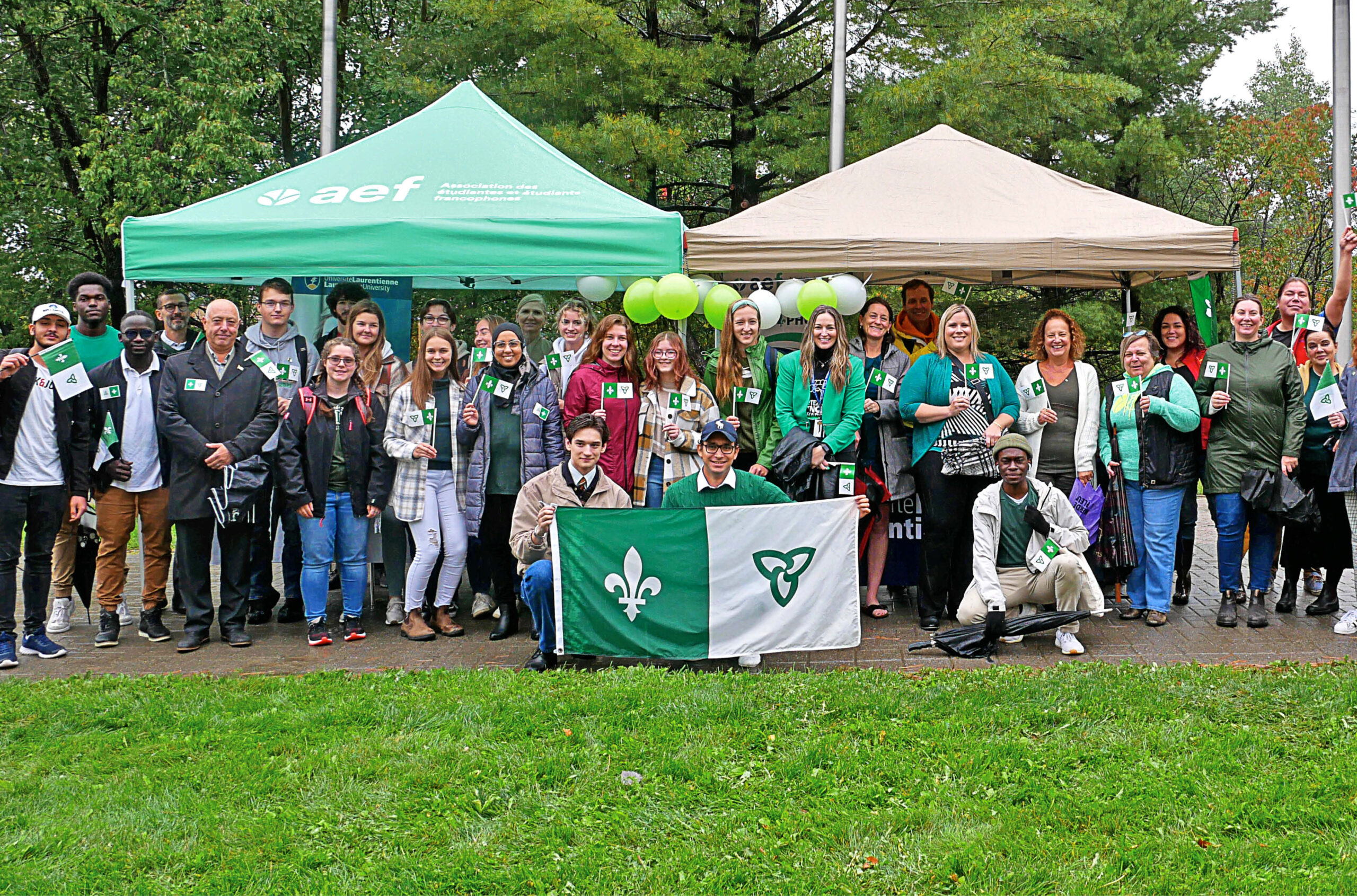Wilfrid Laurier University’s apiaries promote sustainability on campus
The campus’ smallest residents are creating a “buzz” around pollinator protection.

Students and staff at both of Wilfrid Laurier University campuses may start to hear a familiar hum on campus as the weather starts to warm: a few hundred thousand honeybees.
Laurier’s Waterloo campus became home to two beehives in 2017 and their Brantford campus followed suit in 2022 with two beehives, which was increased to four last spring.
Christine McKinlay, Laurier’s associate director of development – as well as a beekeeper who has her own hives – cares for the Brantford campus bees. During the spring when the bees are most active, she checks the hives every 10 days to ensure the queen is healthy, eggs are being laid and there are no diseases, as well as treating the hive for mites. For the first time this past September she harvested enough excess honey to give to members of the Laurier community.
“[We gave honey to] a lot of staff, some students and we gave a jar … to the president of the university and to the mayor of the city of Brantford, because our hives are right in the downtown core of Brantford,” Ms. McKinlay said. She hopes to be able to give some of the honey from the next harvest to the student food banks on campus.
“It’s really neat because it is an urban apiary and so the honey is going to be a unique flavour to the plants and flowers that are in that neighborhood. So every jar of honey is really a reflection of the time when the bees are collecting the honey and I love that about it,” she said.
Laurier’s Waterloo campus, like many others across the country that are home to bee colonies, is designated as an official Bee Campus by Bee City Canada. What makes Laurier Brantford’s apiaries unique is their location; the bees are located in the heart of urban Brantford, on the roof of a former shopping mall purchased by Laurier in 2014.
While the honeybees used in this initiative are not native to the region, Laurier’s Waterloo campus has a pollinator garden and a pollinator spiral to support native bees, butterflies and other native pollinators.
Connection to local food systems
According to Dan McGregor, an outreach and programs officer for Laurier’s sustainability office, the apiaries create a “buzz” around pollinators and their connections to local food systems and biodiversity. “For a lot of [Laurier] students this is their initial touchpoint, this is what’s really going to drive that interest in further engagement,” he said.
The institution’s apiaries were made possible by Laurier’s Sustainable Hawk Fund, which funds student, staff and faculty-led projects to promote sustainability across Laurier’s campuses. The fund supplies $30,000 a year, up to $5,000 per selected project, to initiatives that fit Laurier’s sustainability action plan.
In the future, Ms. McKinlay hopes to expand the program to allow students to become more involved with the bees. She also hopes to host other pollinator and honey-based programs and events at Laurier. “We don’t have any immediate plans to expand the number of hives, but I’d love to engage more students and look for opportunities to do engagement events on campus,” she said.
Featured Jobs
- Canada Excellence Research Chair in Energy TransitionsUniversité du Québec à Trois-Rivières (UQTR)
- Veterinary Medicine - Faculty Position (Large Animal Internal Medicine) University of Saskatchewan
- Psychology - Assistant Professor (Speech-Language Pathology)University of Victoria
- Canada Excellence Research Chair in Forest Biodiversity Conservation (Full Professor)University of New Brunswick
- Business – Lecturer or Assistant Professor, 2-year term (Strategic Management) McMaster University













Post a comment
University Affairs moderates all comments according to the following guidelines. If approved, comments generally appear within one business day. We may republish particularly insightful remarks in our print edition or elsewhere.
1 Comments
Very cool! I had no idea about this.